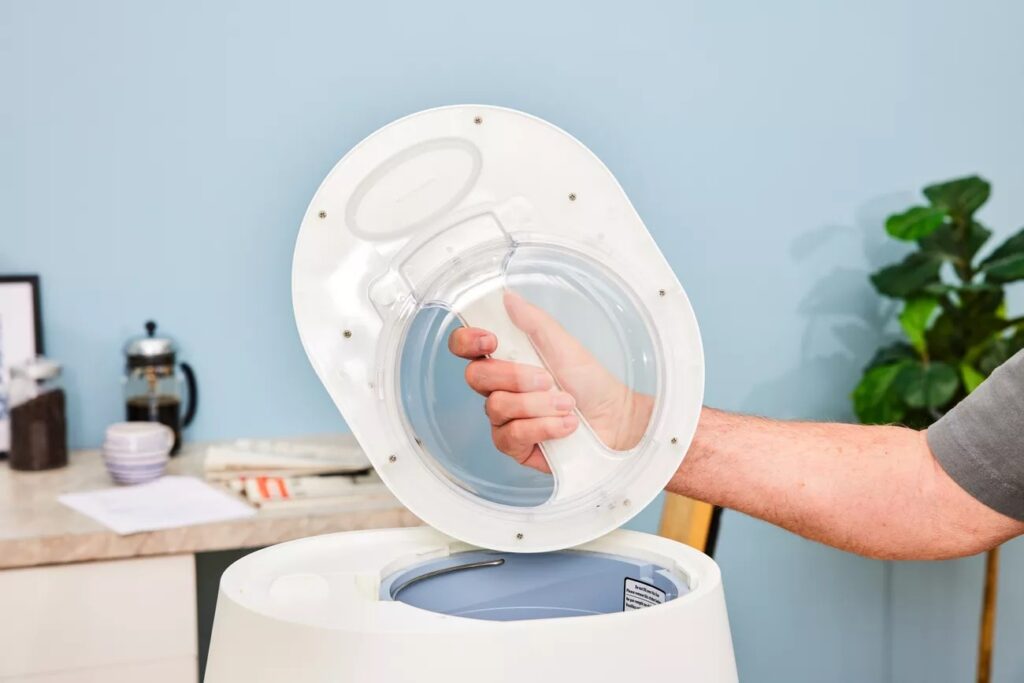
Composting has always been helpful for home gardeners and anyone passionate about reducing waste. But to be honest, traditional composting can be a hassle. It takes time, needs space, and sometimes, it gets a little too smelly for comfort. That’s where the electric kitchen composter comes in.
This modern solution promises to quickly turn food scraps into nutrient-rich compost and with minimal effort. But does it truly help the environment, or is it just another trendy gadget? This article breaks it down.
How Electric Kitchen Composters Work
An electric kitchen composter is a compact device designed to process food scraps right on your kitchen counter. Instead of waiting weeks or months for organic waste to break down naturally, these machines use heat and mechanical grinding to speed up the process. Within a few hours, they transform leftovers into a dry, soil-like material that can be added directly to plants or traditional compost piles.
Many of these composters have carbon filters to reduce odors. They work with a variety of food scraps, including fruit and vegetable peels, eggshells, coffee grounds, and even small amounts of meat and dairy. That makes them a convenient option for people who don’t have the time or space for a traditional compost bin.
The Problem of Food Waste
Food waste is a massive environmental issue. According to the USDA, nearly 30-40% of the food supply in the US goes to waste. When food ends up in landfills, it decomposes anaerobically (without oxygen), releasing methane, a greenhouse gas that’s 25 times more potent than carbon dioxide. Composting, on the other hand, allows food to break down aerobically, reducing methane emissions and creating nutrient-rich soil that can be used to grow more food. It’s a win-win.
The Environmental Benefits
The biggest reason people turn to composting is to reduce waste. By using an electric composter, food waste stays out of landfills, helping to cut down on emissions.
Another major advantage is the production of nutrient-rich material that can improve soil health. Plants thrive when they get a steady supply of organic matter, and the output from these composters provides just that. Instead of sending waste to the garbage, it can go straight back into the garden.
Plus, for those who live in apartments or homes without outdoor space, an electric option offers a way to compost without needing a backyard or dealing with worms and pests.
Comparing Traditional and Electric Composting
Traditional composting is a fantastic way to recycle food scraps, but it requires the right balance of greens and browns, proper aeration, and months of patience. It’s a labor of love for dedicated gardeners, but it’s not for everyone.
On the other hand, an electric composter makes the process fast and nearly effortless. No need to worry about turning the pile or dealing with unpleasant smells. However, it uses electricity, which means an energy cost is involved. The good news is that most models are energy-efficient, and their environmental impact is still lower than throwing food waste in the trash.
Is It Really Worth It?
An electric option might not be necessary for those already composting the traditional way. But for people who struggle with time or space or just want a more convenient method, investing in the best countertop composter is a great decision.
The key is choosing a high-quality model that processes waste efficiently without excessive energy use. Some models even allow users to adjust settings depending on what’s being composted, ensuring the best possible breakdown of materials.
The Future of Kitchen Composting
As technology improves, these composters are becoming more accessible and practical. Some newer models have smart features that allow users to track their composting habits and optimize the process. This could encourage more people to start composting, reducing the amount of food waste in landfills.
The demand for sustainable solutions is growing, and the best countertop composter is a step in the right direction.
Conclusion
Electric composters won’t replace large-scale composting systems or traditional backyard setups, but they provide a practical solution for many households. By making composting easier and more accessible, they encourage more people to take action, reducing waste and enriching soil along the way.
For sustainability enthusiasts, this could be an easy way to contribute to a healthier planet while improving garden soil. It’s a small step, but the impact can be significant when enough people take it.





